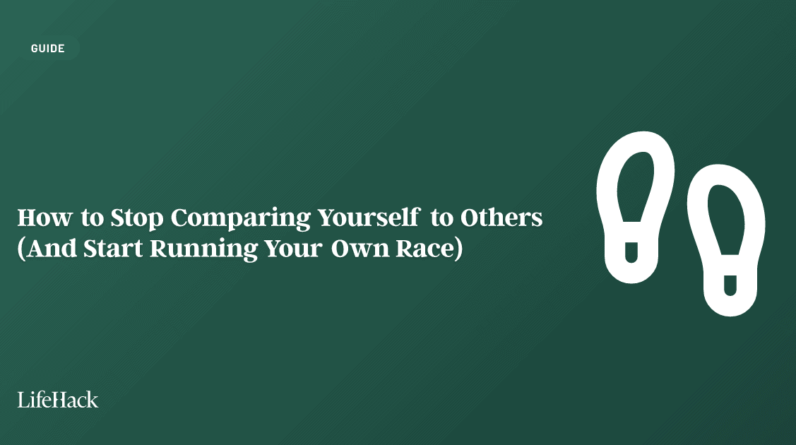
Recently, I started to truly understand the concept of “letting go.”
While overused, hanging onto grudges or anger hurts only ourselves. Yet, letting go offers freedom and opportunity — something, perhaps, many of us wish we had more of.
When beginning to write this article, I couldn’t help but draw parallels between the power of letting go versus not giving your power away.
As Eckhart Tolle has said, “Sometimes letting things go is an act of far greater power than hanging on.”
When we get angry and react, we allow someone else to “control” or “sway” our emotions.
And while we can’t control our emotions in every case (for instance, it’s absolutely okay and normal to be sad over changes in your life or the loss of someone close to you), we can do our best, situationally dependent.
In other words, we can actively choose to change our thoughts and avoid reacting or avoid giving someone else the power to manipulate us.
So, let’s dig into this concept a bit further.
Are you giving your power away?
What is the Psychology of Giving Your Power Away?
Giving away our power can take on many shapes and forms.
Often, it’s used in reference to not allowing others to get a rise or reaction out of you. In this way, you can emotionally guard yourself.
It can also mean when we blame external people or circumstances for our life situation.
Perhaps you believe that your coworkers, family, friends, and more are bent on making your life miserable — and the worst part? You let them. Our beliefs govern these thoughts and determine where our power lies.
Why Do People Give Their Power Away?
Inevitably, this doesn’t happen overnight.
It often arises due to:
- low self-esteem
- trauma
- difficult hurdles in life (like financial difficulties)
- trouble communicating
- and even narcissism
You might default to phrases like, “You MAKE me so mad!”
It’s always another’s fault for how you feel or how things turn out for you.
In many ways, this also intersects with a victim mentality. Yet, if we truly want to grow and find satisfaction in our own life, we need to learn to let this go, and we need to learn that we are in control and have the power to make our life what we want.
How Do We Give Our Power Away to Others?
Are you giving away your power?
Here are the ways this may manifest:
- We have beliefs, such as, “I can’t trust anyone,” “I am not worthy or loveable,” “I can’t handle losing my job or ending a relationship,” or, “If this happens, I’ll be devastated and unable to cope.” It’s important to note that none of these are based on the present reality or situation. And this means we can change them!
- We put our needs aside and deem them unreasonable or unacceptable due to the way others respond to them.
- We don’t feel we deserve to be “heard” by others, specifically those we love or care about.
- We allow others to get a rise out of us or “make” us angry, sad, etc.
Luckily, we can take our power back and quit giving it away.
Remember, we are all in control of our own life and destiny. So, here’s how we can start steering our ship the way we want.
How Do I Stop Giving My Power Away?
Taking your power back doesn’t mean not caring about others.
I want to make this really clear since we never want to become overly self-indulgent to the point of destruction. However, we do need to have boundaries and safeguards in order to look after ourselves and our own mental well-being.
It’s also important to note that taking your power back may look different in different situations and that it often comes down to how we feel or think (Looking into how CBT, Cognitive Behavioral Therapy, works can help a lot in this regard!).
With all of this in mind, here are a few ways to take back your power and govern your own life and emotions!
1. Focus on a Growth Mentality vs a Victim Mentality
Yes, this can be difficult, but it can help you overcome the rut you might find yourself in. And while we may very well be a victim, in some cases, this can give further power to the abuser or perpetrator. Instead, we have to view our circumstances, when ready, from a growth perspective.
- How can we learn and be better from it?
- What can we do to ensure we carve our own path forward?
Related Article: The Victor and Victim Mindset & How to Flip the Script to Take Back Control
2. Learn to Take Responsibility.
But also know where your responsibility ends.
So, okay, you said something out of line; fess up and apologize. But under no circumstances should you apologize for another’s behavior. We can understand each other, but someone else’s actions and words aren’t within our control.
Related Article: Playing the Blame Game? 5 Simple Ways to Help Break the Cycle of Blaming
3. Say “No.”
“No” is a full sentence.
We are allowed to simply refuse a request or demand, especially if we feel maxed out already. Boundaries for ourselves are important to feel good about the actions and choices we make.
Inevitably, it might not feel so great at first. In fact, you might feel straight-up guilty and like you “owe” someone something. However, the more you practice, the easier it gets!
4. Take Time to Pause.
In the heat of the moment, many of us say things to try to get a reaction from the other person.
Yes, it’s terrible, and yes, most of us do it. When on the receiving end, it can be easy to react quickly and shout or say something you don’t mean.
Yet, creating moments of pause before responding can ensure you stay in control and act in accordance with how you want.
Take a deep breath.
Observe your emotions.
Even telling the other person that you’re thinking can be a good move here for good communication. Think carefully about why you feel the way you feel, your goal, and what to say, then speak.
5. Focus on Learning Opportunities.
Push your power further by taking every opportunity to learn.
Practice curiosity. If someone is frustrated with us, let’s find out why.
- How can we do things differently?
- Should we?
This can allow us to remain within the control of our decisions and emotions.
It also expands our power, allowing us to grow personally, mentally, and emotionally.
Become Powerful: Are You Giving Your Power Away?
Ultimately, our power is our ability to navigate tough situations and to understand where our own responsibilities end.
It’s also our ability to be in control of our own life, selecting the moments when we allow for input from others. Remember, we are in control of our emotions. We have the power to create space and react how we want, not according to someone else’s behavior.
Related Article: 5 Important Ways to Set Healthy Boundaries with Others & Stick to Them
Photo by Mubariz Mehdizadeh on Unsplash







